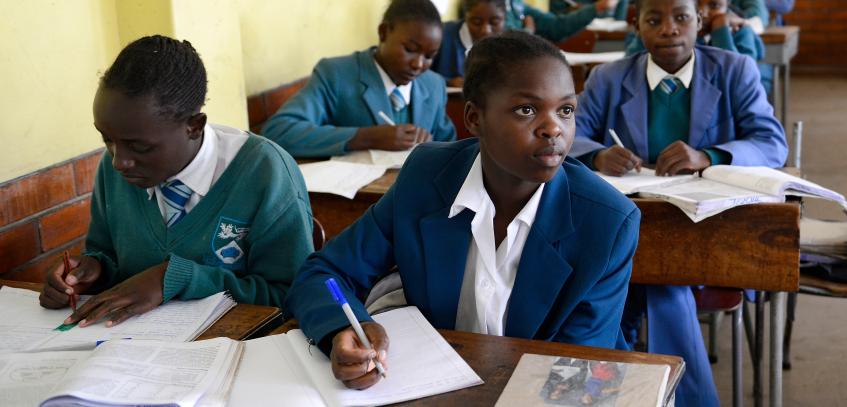The third dialogue in the series “Government−Government Policy Dialogues on Demographic Diversity and Dividends” held on 29 June 2021 focused on education and skills development. Over 120 participants from 51 countries held discussions on lessons learned and current initiatives in policy planning for harnessing education’s contribution to attaining the demographic dividend.
“It is imperative to capitalize on investing in young people and transform the continent with social and economic growth,” said Mr Hambani Masheleni, Head of Department of Education at the African Union Commission (AUC). “There is need to empower women and youth through education and skills development since they are the driving force for the future and sustainable growth across the continent,” underscored Mr Masheleni, Head of Department of Education at the AUC
The dialogue considered six catalysts of quality education for demographic dividend which included: measuring the quality of education, promoting equality, mitigating secondary school dropout, managing school-to-work transitions, bridging the digital divide and promoting lifelong learning.
Organized in six groups, experts discussed each catalysts in depth and identified various practical recommendations to be employed to activate collective action to accelerate progress.
The following highlights the recommendations from the discussions by the group of experts of the dialogue series:
- Decision-makers need to be convinced that investments in education are essential for any prospects of a demographic dividend, and that a large working-age population is only an asset if they have acquired the skills required to contribute to the economy.
- Education is the most powerful tool available to foster social and economic equity by empowering disadvantaged and marginalised populations – especially girls, women and people with disabilities – to develop their full potential.
- It is crucial that learners pursue their education until they can be integrated into the active economy with appropriate work under decent conditions.
- Learners’return to school after an interruption such as pregnancy should be encouraged, e.g. with on-site baby care.
- Learners’ motivation to stay in school should be reinforced by improving school-to-work transitions, including through partnerships with the private sector.
- Quality and equity of education need to be enhanced, e.g. by providing more equal access to digital tools and standardized educational opportunities.
- Capacities to measure and monitor educational quality need to be strengthened, in order to guide targeting of support where most needed.
- The response to COVID-19 included dramatic leaps in use of digital media for communication and education. It is important that this knowledge and experience be widely shared.
- Within the “digital divide” there are actually multiple divides which need to be addressed, from access to electricity, Internet and devices, to girls’ freedom of access to information and communications technology (ICT).
- The essential role of teachers needs to be reinforced and celebrated – teachers can never be replaced by digital devices.
- Lifelong learning is essential for citizens, not only to compensate for gaps in formal education, but also to keep pace with an evolving economy.
The 2019 International Conference in Population Development (ICPD 25) set the stage for policies and practices that countries can use in population and development planning. The next series of dialogues in advancing the attainment of demographic dividend will focus on Reproductive, Maternal, New-born, Child and Adolescent Health (RMNCAH) under the theme “Accelerating adolescents sexual and reproductive health for demographic dividends”.







